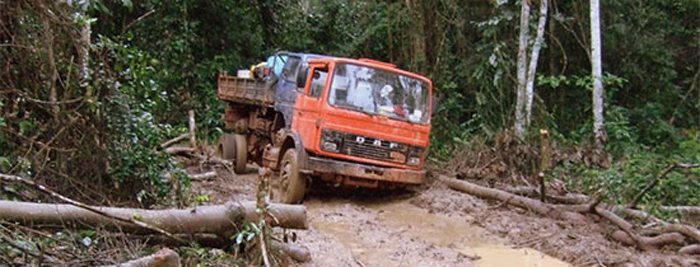Lots of rain and mud
As the rainy season truly hits the West-African country Liberia in April, the 130 kilometres of road, between Fish Town and the port city Harper, is transformed into an inferno of mud that makes cars and trucks struggle not to get stuck.
To avoid this scenario, 50 kilometres of the road is now being asphalted while the last 80 kilometres will be reinforced with gravel.
For the next three years, NIRAS will be evaluating civil contractors offers including traffic safety as well as conducting traffic and financial analyses, and when road construction starts, NIRAS will be supervising and managing the construction.
Despite 570 kilometres of coast line, Harper is just one of four seaports servicing Liberia, and the new road helps ensure the export of goods such as rice, rubber and palm oil from the fertile hinterland.
New road is important for local trade
“It is very expensive for the Liberians to transport their goods. Cars and trucks break down, and as all trade is made up in Vehicle Operation Costs (VOC), an improvement to the stretch of road is of great local significance to the population,” says Business Unit Director in NIRAS, Torben Henneberg Sørensen.
In time, the entire stretch is to be asphalted and the work is likely to be extended further into the country, which makes Torben Henneberg Sørensen hope that this project will bring in other jobs as well.
Strong regional partner
NIRAS will complete the project in collaboration with the Ghanaian consultant COMPTRAN Engineering & Associates that has the primary responsibility for the project.
“This project is a break through for NIRAS into the road construction sector in Liberia. NIRAS is in market where we are building on strong collaborative relationships and references and the combination of a strong regional partner that carries the primary responsibility gives us an acceptable risk model,” says International Market Director for infrastructure in NIRAS, Carl Chr. Østergaard.
For the last five years, NIRAS has been present on the Liberian market with consulting engineering and is currently working on projects covering coast zone administration, development of seaport areas, marine terminals for iron ore and preliminary studies for tank and fuel installations.
Ebola is not delaying the project
NIRAS is closely following the daily reports from the Ministry of Foreign Affairs on the outbreak of Ebola in West Africa.
“We are taking precautions and we are adjusting our activity level to avoid taking unnecessary risks. Currently, it is not causing any delays since the projects are solved from Denmark or Ghana,” says Carl Chr. Østergaard.
The project is financed by the African Development Bank.
Niras recently won a tender to design the new Mombasa oil terminal to replace the old Kipevu.

